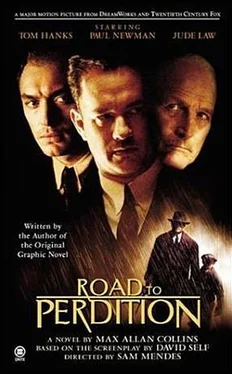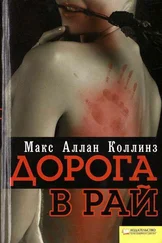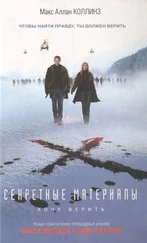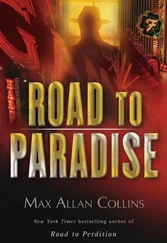“Word about McGovern will be out,” Looney had said. “Can you drive over across the river, to Bucktown, and call on Calvino, tonight? We need to make a statement — to show our people it’s business as usual.”
So he called Annie from Looney’s study — he’d been home already, for an early supper, a sandwich — and told her not to expect him for an hour or two, at least.
“Is Michael behaving?” he asked her.
“Yes — just a little quiet. He has a birthday party tonight, at St. Peter’s. That should cheer him up.”
“Should,” he said, and they said good-bye to each other.
O’Sullivan had reached his car when he heard Connor’s voice, surprisingly cheerful, calling out, “ Mike! Wait up.”
He turned and Connor trotted up to him. “Pa forgot to give you something — a message for Calvino.”
Connor handed O’Sullivan the sealed envelope with Calvino’s name scrawled on it.
O’Sullivan asked, “You going with me? Better grab your coat.”
“No. You don’t need my help, handlin’ that fuckin’ hophead Calvino... Anyway, I’m kinda sitting in the corner, right now. I’m a bad little boy, I guess.”
“I guess.”
“Hey, uh, Mike — about last night... sorry. I should’ve watched my mouth around McGovern. He always was a proud son of a bitch.”
“Yes he was.”
“I put you in a bad place... and I just want you to know that, uh... hell, you know.”
“All right.”
O’Sullivan got behind the wheel of the car, and Connor tossed him a wave and headed back into the mansion. The guy seemed in an awfully good mood for someone who’d been humiliated by his own father, not so long ago.
Of course, a lot of Connor’s actions could be explained by one fact, O’Sullivan knew: the bastard was crazy as a bedbug.
On the Iowa side of the river, given over to sin of varying stripe, Bucktown nestled in the riverfront blocks of Davenport’s west side. The wide-open area — where it was said you could buy anything for a buck — resided mostly in Tony Calvino’s pocket. This seedy, trashy district was not O’Sullivan’s favorite part of the world; he parked his Ford on the street, ignoring the devil-red glow of the CALVINO’S neon, walking around to the alley entrance.
Tony Calvino had once been a contender in local rackets, and Bucktown remained his stronghold. But Calvino had a reputation for indulging in his own merchandise — from booze to dames to drugs — and that had reduced him to just another acolyte of John Looney.
Breath smoking in the cold, O’Sullivan moved down a stairway to a basement door, a wooden sign next to which read SUBWAY POOL AND BILLIARDS. A size-48 bouncer in a size-44 suit stood guard at the door, arms folded, rocking on his heels; a small kerosene heater kept the air warm. He had the bored, self-confident look of a guy who had beaten the crap out of countless others.
“Help you, sir?” the bouncer said, with a faint lilt of sarcasm. O’Sullivan, in his dark suit and topcoat, must have seemed like another slumming businessman. “Or just lookin’?”
“Tell Mr. Calvino I’m here,” he said.
“Oh really? And who might you be? Mr. Calvino don’t see just anybody.”
“Mike O’Sullivan. I work for Mr. Looney.”
The bouncer stopped rocking on his heels; his eyes widened, his complexion paled, as the blood in his face ran for cover. “Oh... Mr. O’Sullivan. Of course. I shoulda recognized you.”
“Why? Have we met?”
“No, no... but everybody’s heard of the Angel... if you don’t mind my callin’ you that.”
“Just tell Mr. Calvino I’m here.”
“Oh, well, sure — come on in, I’ll show you the way... ”
“Shouldn’t you pat me down first?”
“Uh, should I?”
“Good idea to.”
The bouncer gave O’Sullivan a quick frisk, found the .45 in the shoulder holster, and stuck the pistol in his own waistband, under his suitcoat, with an apologetic shrug.
“That’s the only one,” O’Sullivan assured him.
Then the bouncer — flustered and friendly — led the way through the pool hall beyond the door; in a room awash with green-felt tables under pools of light from conical hanging lamps, no one was playing right now. Tumbleweed might have blown through.
“I’ll know you next time, Mr. O’Sullivan,” the bouncer was saying, clearly nervous in his presence. “I’m kinda new, still putting names with faces — I’m from over Elgin way. I had no idea Mr. Looney’s influence was so... influential.”
O’Sullivan said nothing. The bouncer was showing him through another door, into a storeroom filled with barrels of liquor, which he led O’Sullivan across.
“They say Mr. Looney, he’s as big as Westinghouse,” the guy said, rapping his knuckles on another door, a coded knock.
The heavy door opened, revealing a bright bustling casino area, unleashing the near-hysterical sounds of laughter and dismay, roulette balls spinning, dealers calling out cards, dice clicking against wood. For the most part, however, the patrons here were not high-hat high rollers, just working men with their girlfriends or maybe even their wives, or anyway somebody’s wife, risking money they were lucky to be making in these hard times.
A giddy group of little boys and girls — children! — were playing ring-a-round-the-rosy with some slot machines, getting in the way as the two men moved through the gambling hall. It sickened O’Sullivan, seeing children around this vice.
The bouncer seemed to agree. After shooing the kids out of the way, he glanced back at O’Sullivan, saying, “Not right, kiddies around a place like this; but some of the workin’ girls got nowhere’s else to put ’em. In my opinion, some things a kid just shouldn’t see, know what I mean?”
They had moved into a barroom now, where couples were dancing and, on a stage at the far end, a colored jazz band was blaring away at “When the Saints Go Marching,” making up for what they lacked in skill and musicianship with enthusiasm and volume.
The bouncer almost had to yell to be heard over the brass. “Hey, I’m a grown man, and this place gets to me, sometimes. Seems like every night there’s trouble — I collected more knives from people than a busload of bus boys.”
O’Sullivan said nothing.
“Answer me this, Mr. O’Sullivan — if nobody’s got any dough in this Depression, what the hell are these chumps doin’ in here throwin’ it away? Seems like there’s always money for frills and frails, never money for food and flop... If this is the human race, I say we’re losin’.”
Moving to the next circle of hell, a door opened onto the receiving area of Calvino’s brothel, where low-key lighting didn’t soften the reddish velvet drapes and black-and-red flocked wallpaper, the air ripe with the smell of cheap perfume and face powder. Ranging from their late teens to their early thirties, soiled flowers in overstuffed chemises on overstuffed settees perched and preened along the walls, like a buffet line of sex, working stiffs and men of means alike moving down each row, picking out their selections.
At the door, the madam, a hussy in her fifties with troweled on makeup, called out a number — as if this were an ice cream parlor — and the lucky girl who’d been chosen stood to receive the arm of the patron who’d picked her. With a smile worth every penny, the blonde floozy led her salesman-looking fellow down a dim corridor, and the bouncer and O’Sullivan followed after.
The hooker and her john ducked into a cubicle, shutting a velvet drape over the doorless doorway; the entire corridor was lined with such curtained doorways, and as the two men passed by, the muffled music of sexual intercourse — funny, O’Sullivan noted, how remarkably similar the sounds of pleasure and pain were — provided a backdrop for the bouncer’s endless chitchat.
Читать дальше












